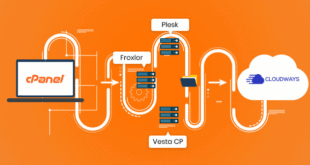 Dedicated hosting can give you access to server resources that drastically improve your network’s performance attributes (i.e. – page load times and the ability to accommodate more visitors). Although you don’t have to be a professional to reap the benefits of a dedicated server, you can get a better value for your monthly hosting budget, and ensure better reliability, by choosing the best dedicated hosting plan and adhering to the following four tips for so:
Dedicated hosting can give you access to server resources that drastically improve your network’s performance attributes (i.e. – page load times and the ability to accommodate more visitors). Although you don’t have to be a professional to reap the benefits of a dedicated server, you can get a better value for your monthly hosting budget, and ensure better reliability, by choosing the best dedicated hosting plan and adhering to the following four tips for so:
Perform Regular Backups and Security Updates
 Unless you’ve purchased an unmanaged hosting plan, your dedicated server should come preloaded with a control panel that includes all of the applications needed to perform scheduled backups. You can set your server to save backup data to your computer’s hard drive, a removable media device like an external HDD, or even an online data storage account. While problems associated with data loss/damage are rarely encountered by dedicated hosting plan holders, keeping a copy of all of your files/directories will allow you to free up space by deleting data that no longer needs to be hosted, yet may be important to future operations. In addition to performing regular backups, you should also perform regular kernel security updates and keep all installed software patched to stay protected from hacking attacks.
Unless you’ve purchased an unmanaged hosting plan, your dedicated server should come preloaded with a control panel that includes all of the applications needed to perform scheduled backups. You can set your server to save backup data to your computer’s hard drive, a removable media device like an external HDD, or even an online data storage account. While problems associated with data loss/damage are rarely encountered by dedicated hosting plan holders, keeping a copy of all of your files/directories will allow you to free up space by deleting data that no longer needs to be hosted, yet may be important to future operations. In addition to performing regular backups, you should also perform regular kernel security updates and keep all installed software patched to stay protected from hacking attacks.
Utilise Email Management/Forwarding Features
Email management/forwarding features are some of the most notable benefits of having access to a dedicated server, as they give you the freedom and convenience of being able to view, edit, organize, and send e-mails from multiple inboxes within a centralized administrative interface. You can save a lot of time by forwarding all of your business emails to the inbox/e-mail client of your dedicated server using POP3 settings. Some of the most mundane tasks associated with maintaining a network of successful sites is responding to emails in an expeditious manner. Fortunately, you can set up email response applications within the control panel of your dedicated server, thereby giving you the ability to accommodate site visitor/client inquiries on an automated basis.
Understand and Appropriately Allocate CPU/RAM Capabilities
It’s important to understand the CPU processing and random-access memory capabilities of the dedicated server that is being leased to you through your hosting account, as overloading the server with tasks could result in decreased performance. A good way to determine how many server resources each of your websites is using is to utilize the analytics tools available within your control panel, which indicate how much bandwidth/disk space the server is being burdened with. In cPanel this information can be easily accessed within the homepage of the administrative interface along the left navigational panel. In addition, as the sole user of the dedicated server you’ll have the freedom to limit bandwidth/disk space uses for specific sites – a feature that is incredibly useful for keeping all pages within your network loading quickly during periods of unpredictable traffic surges.
 Use Remote Monitoring Services/Scripts
Use Remote Monitoring Services/Scripts
A great way to ensure that your dedicated server is performing optimally at all times is to utilize remote server monitoring applications/services. Doing this will give you the ability to instantly generate reports, graphs, and statistics that provide useful, simple, and clear information about various aspects of server usage. Some services also allow you to monitor resource usage on a site by site (or even per application) basis, giving you a better idea of how each component within the network is affecting your server. Perhaps the most advantageous feature of remote monitoring services/scripts is the ability to oversee and manage a dedicated server from anywhere in the world where you can connect to the Internet.
 Cheapest Linux VPS Home for Cheap Virtual Private Server
Cheapest Linux VPS Home for Cheap Virtual Private Server 

